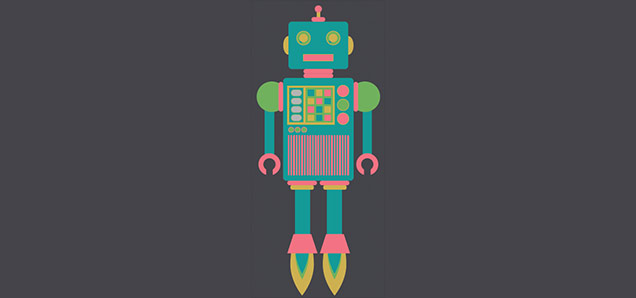I, Robot take your job?

Will we one day live in a Wall-E world where humans no longer have purpose and machines do all our work?
This big question came to me after a conversation I had with a VIA rail representative over the phone.
Trying to book my ticket back home, VIA’s online service wasn’t helping me the way I wanted, so I placed a call instead.
At the end of the conversation, my VIA rep encouraged me to keep calling to book my tickets because she wanted to “keep her job.”
This got me thinking… are machines slowly taking over our jobs?
Vertha Coligan, Dean of the Faculty of Technology, doesn’t think so.
“I don’t think technology necessarily needs to eliminate jobs, but rather change the way we do our jobs,” she said. “But before people know what it means to them, there’s fear.”
Coligan did admit that technology may eliminate some jobs, but it can also cause for new ones to pop up.
She recalled a recent visit to a bank where there were two or three bankers, but remembered seeing more in her youth.
I don’t know where the (bank tellers) have gone, but I don’t think we should assume that the bank employs fewer people,” said Coligan. “Perhaps the people who were doing those jobs, those jobs have morphed into other types of jobs.”
Brian Malott, resource and information officer for Community Employment Services at Fanshawe College, agreed that jobs are evolving, and new ones are coming out.
“(Bank telling) is a job that’s going to evolve. Even now bank tellers aren’t just taking deposits. They’re also selling financial services as well,” said Malott. “Jobs evolve because of the technology.”
And as for new jobs?
“Five years ago, the job ‘social media strategist’ didn’t exist. Nowadays, most companies are looking to hire someone to look after their social advertising.”
Even with the rise of robotics in manufacturing, Coligan is convinced humans will still need to operate them.
“Robotics are used in manufacturing settings, but people still have to program the robots and care for the robots and supervise the process,” she said.
And Malott agreed.
“I think machines will always need some kind of intelligence working on them,” he said. “I don’t think machines will get to the point that they’re self-sufficient. Machines are just tools, and that’s all they are. They need somebody to use that tool.”
As jobs change because of technology, Coligan said it’s an opportunity for employers to let employees to retrain and develop.
“New technology provides us with those opportunities to continue learning and to continue developing and to have more choices,” said Coligan. “As long as companies are continuing to invest in the growth of their people and to continue to ensure that they provide them with opportunities to learn and to adapt to new working scenarios, then we don’t need to worry about technology.”
Malott’s last word of advice: “Be open to continuous learning, always growing. I think the knowledge piece is always changing, especially with technology accelerating how fast information’s moving now. You need to always be continually learning and relearning new things.”













